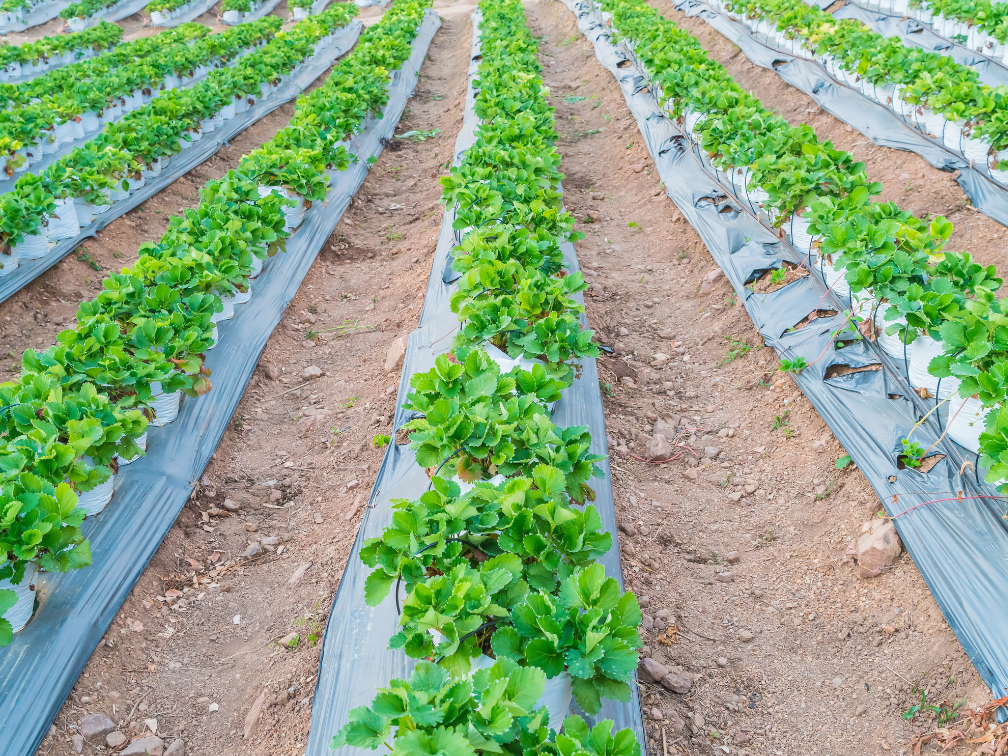Uncovering the Advantages of Mulch Films: Enhancing Agricultural Practices and Yield

Agriculture is the backbone of human civilization, providing us with sustenance and supporting economies worldwide. The demand for increased food production grows as the global population grows. In this pursuit, farmers are constantly seeking innovative techniques to enhance agricultural practices and maximize yields. One such technique gaining popularity is the use of mulch films. These thin sheets of material offer numerous advantages that can significantly improve crop growth, weed control, water conservation, and overall agricultural productivity.
We will delve into the advantages of mulch films and explore how they are revolutionizing modern farming.
Enhanced Soil Temperature and Moisture Control
Mulch films act as an insulating layer on the soil surface, helping to regulate soil temperature. They effectively trap heat from the sun, keeping the soil warm during colder seasons and preventing excessive heat loss. By maintaining optimal soil temperatures, mulch films create a favorable environment for seed germination and root development, leading to faster and healthier plant growth.
Furthermore, mulch films reduce water evaporation by acting as a barrier between the soil and the atmosphere. It helps retain soil moisture and reduces irrigation frequency, saving water resources and labor. Consistent soil moisture levels are crucial for plant growth, and mulch films are vital in providing the necessary water balance.
Effective Weed Control
Weeds compete with crops for essential resources such as water, nutrients, and sunlight. Traditional weed control methods often involve herbicides or extensive manual labor, both of which can be time-consuming and costly. Mulch films offer a natural and efficient weed management solution.
The opaque nature to prevents sunlight from reaching the soil surface, inhibiting weed germination and growth. By suppressing weed growth, mulch films eliminate the need for herbicides and reduce the manual effort required for weed removal. It saves farmers valuable time and resources, allowing them to focus on other important aspects of crop cultivation.
Reduced Soil Erosion and Nutrient Leaching
Soil erosion is a significant concern in agriculture. It actually leads to the loss of fertile topsoil and valuable nutrients. It act as a protective layer, shielding the soil from erosive forces like wind and water. They prevent soil particles from being carried away, preserving soil structure and fertility.
In addition, it reduce nutrient leaching by minimizing water movement through the soil profile. Nutrients, such as nitrogen and potassium, essential for plant growth, are retained in the root zone instead of being washed away. It allows crops to access these nutrients more effectively, promoting healthy development and improving yield quality.
Pest and Disease Management
Mulch films can be a physical barrier against pests and diseases, providing a protective shield for plants. The films create an unfavorable environment for pests, impeding their movement and preventing direct contact with the crop. It reduces the incidence of pest infestations and lowers the dependence on chemical pesticides.
Moreover, mulch films help to prevent soil-borne diseases by acting as a barrier between the soil and the plant. They restrict the splashing of soil particles onto the leaves, reducing the risk of infections. By minimizing disease pressure, mulch films contribute to healthier crops and reduce the need for disease control measures.
Improved Crop Quality and Yield
The combined benefits of mulch films translate into improved crop quality and increased yields. By optimizing growing conditions, suppressing weed competition, conserving moisture, and protecting against pests and diseases, mulch films promote vigorous plant growth and development. It, in turn, leads to higher-quality produce, improved uniformity, and increased market value.
Furthermore, it consistent and enhanced growth allows for earlier planting and extended growing seasons. This flexibility is precious in regions with shorter growing seasons, enabling farmers to cultivate a broader range of crops and maximize productivity.
Why choose GreenPro Ventures
Mulch films by GreenPro Ventures have emerged as a valuable tool in modern agriculture, offering a range of advantages that enhance agricultural practices and improve yields. These thin sheets of material effectively control soil temperature and moisture, suppress weeds, reduce soil erosion and nutrient leaching, and provide protection against pests and diseases.
As the world continues to face the challenge of feeding a growing population, mulch films have become a crucial ally in sustainable and efficient agricultural practices. Contact us for additional information.
